10 Major Complications of Fecal Impaction
There are many reasons why fecal impactions are considered an extremely dangerous and potentially life-threatening condition:
- Fecal impactions have a very high mortality rate from major complications (discussed below)
- They can increase your risk of developing secondary diseases such as colon cancer
- An impacted stool can silently damage your nearby organs such as your kidneys, bladder, liver, etc.
- These complications tend to happen suddenly, often without any prior warning signs
- These complications can even occur in the earliest stages when you’re simply constipated and your stools are not completely stuck yet
As you’re about to see, fecal impactions have the capacity to devastate your health and significantly lower the quality of life.
Here are the 10 major complications that every fecal impaction sufferer should be aware of and every effort should be made to avoid these potential dangers through proper treatment…
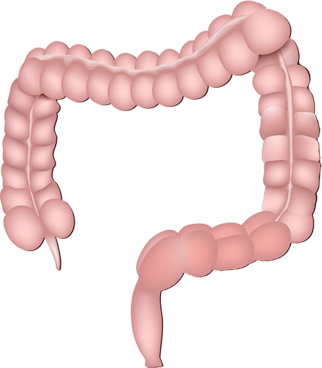
Colon perforation
This is one of the biggest risks of having a stuck stool and also one of the most common reasons why people die from fecal impactions.
There are many reasons why fecal impactions are considered an extremely dangerous and potentially life-threatening condition:
Perforations usually happen when an impacted stool pushes so hard against the inside of your digestive tract that it begins to breakdown from the inside-out.
This internal push from the hard fecal mass cuts-off the blood flow within your digestive tract and the extreme internal pressures lead to ulcerations in its sensitive inner lining. The resulting inflammation eventually goes past the inner lining and begins to affect the outer wall, progressively weakening it to the point of eventually tearing open.
It is crucial to realize that you could be at the brink of a perforation and not see any obvious signs of the approaching threat.
When the digestive tract does finally rupture, things begin to deteriorate alarmingly fast
Once you develop a perforation, bacteria from the inside of your colon quickly invades your abdominal cavity, causing a serious infection that requires immediate and aggressive treatment.
At first, your abdominal cavity experiences extreme inflammation around the site of the initial infection (localized peritonitis). However, this inflammation soon spreads to the rest of your abdominal cavity (diffuse peritonitis) which has a very high mortality rate.
From there, the bacteria can rapidly spread into your bloodstream and cause a deadly bodywide infection called sepsis.
Sepsis can in-turn lead to something called septic shock where your blood pressure falls to dangerously low levels, causing a multi-organ shutdown affecting your lungs, heart, brain and kidneys.
All of this can happen in a matter of hours to days while the sufferer might still be grappling with vague symptoms, not knowing they are in the midst of a health crisis and moments away from calamity.
Clinical evidence shows that the overall mortality rate for a colon perforation is 33%, the chances of a fatality are even higher if the time to surgery is delayed.
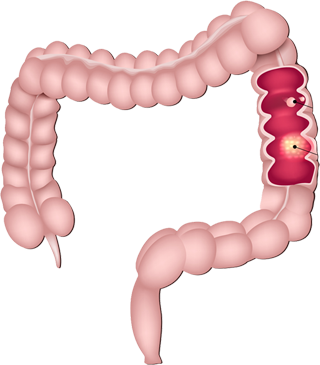
Colon cancer
Your risk of colon cancer starts going up long before your stools get completely stuck. In fact, clinical evidence indicates that people with chronic constipation have a much higher prevalence of colorectal cancer compared to the general population.
One reason for this may be because the slow fecal transit during constipation prolongs your gut’s exposure to concentrated carcinogens in your stools. This carcinogenic effect is even more pronounced during fecal impaction because your colon’s inner lining is in constant contact with the fecal mass. The longer your stool remains stuck, the greater the oncogenic (cancer-causing) effect.
Another reason for the increased risk of colon cancer in fecal impaction sufferers may be due to disruptions in the bacterial balance of the gut. Research shows that digestive dysbiosis causes cancer-promoting inflammation in the digestive tract.
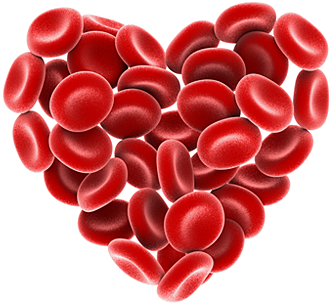
Other types of cancers
Aside from colon cancer, clinical data shows that constipation also increases your chances of developing cancers in other parts of your body…
- For example, constipation sufferers are not just more likely to get gallbladder cancer, they are also more likely to die from it.
- In women, constipation has shown to increase the chances of having breast cancer and ovarian cancer.
- In men, a fecal impaction can affect the prostate, raising the serum PSA levels, making it harder to catch prostate cancer early.
Note how these studies focus on the role of constipation in promoting these cancers. Fecal impaction multiplies your risk of developing these cancers because the damage to your body is amplified from the pathologically larger, slower moving stools.
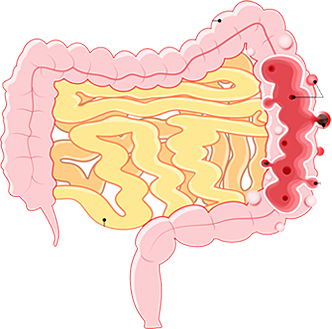
Diverticulitis
As we age, the constant pressure of hard stools pushing against the digestive wall can cause our large intestine to develop “weak spots”. The colon tissue at these weak spots is so fragile that it eventually gives way and bulges-out to form small pouches called diverticula.
More than third of all adults have diverticular pouches by age 50 and more than half form them by age 60.
Once you form these pouches, continued high pressures from your stools causes them to form microtears which allows the bacteria in your colon to infect the diverticula. This infection of your diverticular pouches is known as diverticulitis.
Diverticulitis causes your already weakened colon wall to experience further inflammatory damage and this can lead to a potentially fatal perforation.
Fecal impaction sufferers in particular are at a much higher risk of perforations from diverticulitis because their consistently hard stools not only speed up the age-related weakening of the colon wall, it also increases the chances of their diverticula forming microtears.
And this demonstrates a very important point…
Your stools don’t need to be stuck for your colon to experience a lethal perforation. In this case, it’s not the ischemia, ulcerations or colitis damage from a jammed fecal mass that causes a rupture but an infection from a slow-moving stool that can potentially cause your colon wall to tear.
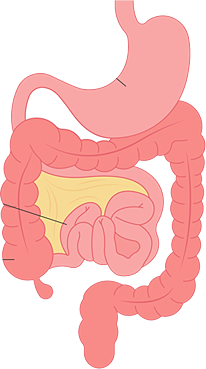
Toxic megacolon and Toxic megarectum
Both chronic constipation and fecal impaction are known to cause something known as stercoral colitis where pressure from the hard stools lead to an inflammation of the digestive lining.
However, when this inflammation spreads past the inner lining and into the outer smoothmuscle layer, damage to specialized ells (ganglion cells) can cause your digestive tract to lose its peristaltic motions and suddenly become dilated.
This sudden dilation is known as megacolon or megarectum (depending on where it occurs) and there is a high mortality rate associated with it.
Diverticulitis causes your already weakened colon wall to experience further inflammatory damage and this can lead to a potentially fatal perforation.
What makes toxic megacolon/toxic megarectum especially dangerous is that you are at an extreme risk of perforations and life-threatening infections even when there is no fecal mass stuck in your colon or rectum.
This goes to show how the digestive tissue damage from inflammation and bacterial imbalance can last long after your hard stools have passed out of your system. With every constipated bowel movement and every new episode of fecal impaction, the injury simply adds on to previous
damage and your chances of an eventual emergency keeps growing.
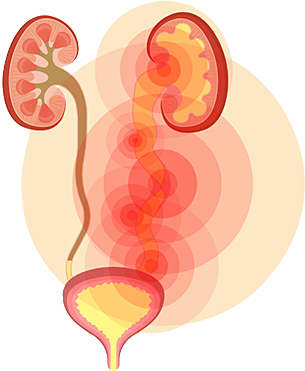
Kidney and bladder damage
When a stool trapped in your digestive tract gets too big, it can begin to damage nearby organs in your abdominal cavity by compressing their nerves or their blood vessels. This is known as the “mass effect”.
The kidneys and the bladder are especially prone to damage from fecal impactions via the mass effect.
For example, a highly distended rectum can push against the bladder and urethra, causing severe urinary retention. A blockage in the flow of urine can lead to multiple issues, including:
- Urinary tract infections
- Urinary incontinence (urine leakage)
- Bladder damage from being stretched too much or for too long
- Kidney damage from obstructive uropathy – urine being backed up and swelling your kidneys
- Kidney damage from pyelonephritis – a UTI that spreads upstream and ends up causing a kidney infection
A large fecal mass can even cut-off the blood-flow to your kidneys by pushing against the arteries leading to them. This is known as renal insufficiency and it can cause kidney failure. Much of this damage can happen silently since the kidneys lack pain receptors. Also, since you have two kidneys, you could essentially lose one to kidney failure without realizing it because the other one would continue to make urine.

Liver and spleen damage
The hepatic flexure is a part of the colon on the upper right quadrant of our abdomen and when a fecal impaction occurs here it can cause damage to both our liver and spleen.
Recent data suggests that fecal impactions can lead to hypotrophy of the liver and spleen, where these organs begin to degenerate because of tissue injury from oversized stools.
There is even clinical evidence that suggests fecal impactions can lead to hepatic encephalopathy, a serious condition where toxin buildup from liver failure begins to affect the brain.
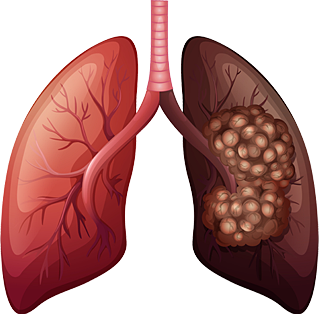
Lung damage
Besides pushing against nearby organs, the damage of a large fecal mass can even extend all the way up to the diaphragm where it can interfere with your breathing and your lung function.
Studies report that fecal impactions can lead to spontaneous lung collapses (pneumothorax). While it used to be believed that this complication was caused by air escaping the colon through a perforation, there is evidence that constipation can cause a lung collapse even when there are no ruptures in the digestive wall.
Keep in mind, when a lung collapse air can escape into the pleural space where the pressure imbalance can lead to potentially fatal results if not treated immediately.
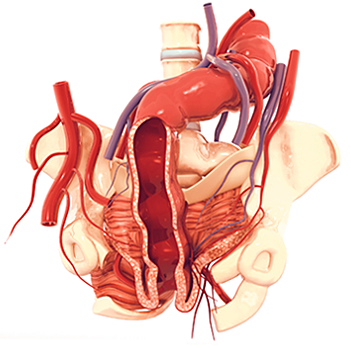
Fistulas
The lack of blood flow and high pressures from a large fecal mass can cause the digestive tract to ulcerate. Since everything in our abdominal cavity is tightly packed together, sometimes these ulcerations can burrow right through the bowel wall and create a tunnel into a nearby tissue.
This unnatural tunnel is known as a fistula and fecal impactions are known to cause many different types of fistulas that can put your health at risk:
- Rectovaginal fistulas where the stool can leak into the vagina from the rectum
- Colouterine fistulas where stools can leak into the uterus from the colon
- Colovesical fistulas where stools can leak into your urinary bladder
- Anorectal fistulas where stools can leak into the tissue around the anus (perianal region)
Since fistulas introduce feces to parts of our body where fecal matter doesn’t belong, you can develop severe recurrent infections in these areas. Even worse, fistulas can often lead to abscess formations which can be extremely dangerous if left untreated.
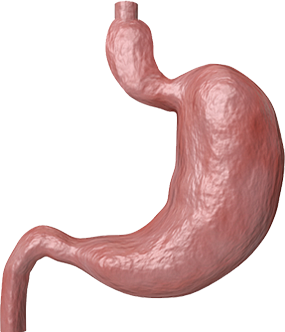
Abdominal hernias
The continual push of a large fecal mass against your abdominal wall can cause it to weaken over time. If this pressure remains constant, the intestine can eventually tear through the abdominal wall and start protruding outwards.
This bulging-out of the intestine is known as an abdominal hernia and it can be a very serious condition.
One major risk of hernias is something called a strangulation. A strangulated hernia is the result of your intestine’s blood supply getting cut-off by the surrounding muscles, leading to tissue death. Unless emergency surgery is performed, you could experience a bowel perforation, putting your life at risk.
What makes abdominal hernias especially dangerous for fecal impaction sufferers is that they further limit the flow of your already stranded stools, which significantly adds to your chances of suffering a major medical emergency.
4 additional things you should keep in mind…
Aside from the 10 major complications we’ve just covered, there are many other things that can significantly degrade your everyday life
Fecal impaction patients often report ongoing issues with problems like…
- Accidental diarrhea and stool leakage
- Rectal prolapses and bleeding
- Abdominal aches and digestive discomfort
- Frequent sharp pains from hemorrhoids and anal fissures
For many sufferers, these issues can become so chronic that they can start interfering with your day-to-day living, causing considerable mental distress. Indeed, research has shown that fecal impactions substantially lower the quality of life in people where conventional treatments don’t seem to help.
Fecal impaction tends to become a life-long problem that only gets worse with time
Clinical data suggests that once you’ve had your first impaction you are likely to get it again. What’s more, the older you get the higher your chances of ending up in the emergency room from fecal impaction complications and the higher your chances of death from these complications.
Emergency treatments for fecal impactions have poor success rates
When a sufferer develops a major complication, such as a perforation, urgent surgery becomes essential to save the patient’s life. However, even with immediate hospital admission, the patient faces poor outcomes.
Clinical evidence indicates that doctors often incorrectly diagnose the extent of the problem when going into emergency surgery, which leads to higher postoperative mortality. What’s worse, this mortality rate climbs even higher if you have a history of prior hospitalization.
All 10 of the major complications discussed above often go unnoticed until something serious happens
Whether it’s colon cancer or kidney injury, fecal impactions have a tendency to carry out their damage quietly. It’s one of the reasons why many studies report a high economic burden from fecal impaction sufferers commonly requiring emergency treatment.
Most people never see the disaster headed their way because they expect to see a clear sign that something critical has gone wrong inside. However, these signs rarely reveal themselves until it’s too late.
The only way to truly prevent a sudden health emergency is to never wait for alarming symptoms and to treat your problem as early as possible.
While this list of complications shows how fecal impactions can threaten your health, a new wave of research is now beginning to reveal many additional dangers that we were previously unaware of.
These new studies show that the early decline in your digestive tract’s function, which happens long before you develop a fecal impaction, can even shorten your life.
Next, we’ll have a look at the 10 rarely discussed risks of simply having an impaired gut and how it can disrupt almost every aspect of your health.



